To provide the best experiences, we use technologies like cookies to store and/or access device information. Consenting to these technologies will allow us to process data such as browsing behaviour or unique IDs on this site. Not consenting or withdrawing consent, may adversely affect certain features and functions.
The technical storage or access is strictly necessary for the legitimate purpose of enabling the use of a specific service explicitly requested by the subscriber or user, or for the sole purpose of carrying out the transmission of a communication over an electronic communications network.
The technical storage or access is necessary for the legitimate purpose of storing preferences that are not requested by the subscriber or user.
The technical storage or access that is used exclusively for statistical purposes.
The technical storage or access that is used exclusively for anonymous statistical purposes. Without a subpoena, voluntary compliance on the part of your Internet Service Provider, or additional records from a third party, information stored or retrieved for this purpose alone cannot usually be used to identify you.
The technical storage or access is required to create user profiles to send advertising, or to track the user on a website or across several websites for similar marketing purposes.
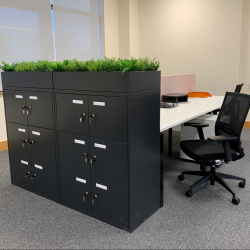 As part of their ‘return to the office’ following the COVID-19 pandemic, Crunch Digital, a digital media specialist that focuses on SEO, pay-per-click-social media, programmatic, technical, and creative services, wanted to create a new office space that promoted both safety and collaboration. The office design, carried out in partnership with Ministry of Furniture and KI furniture also needed to reflect the ethos and culture of the company and cater to a young and innovative workforce. More →
As part of their ‘return to the office’ following the COVID-19 pandemic, Crunch Digital, a digital media specialist that focuses on SEO, pay-per-click-social media, programmatic, technical, and creative services, wanted to create a new office space that promoted both safety and collaboration. The office design, carried out in partnership with Ministry of Furniture and KI furniture also needed to reflect the ethos and culture of the company and cater to a young and innovative workforce. More →




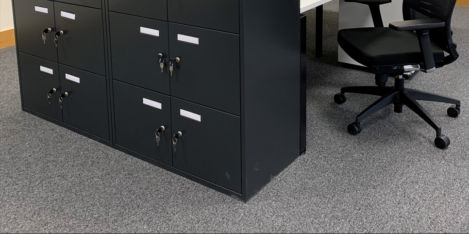
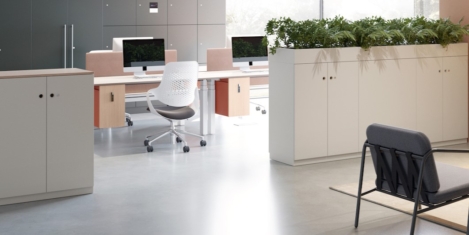
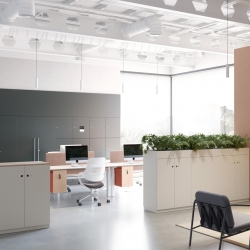









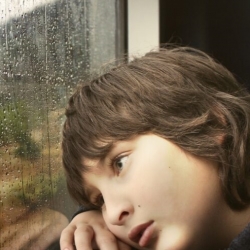 The modern world seems geared to help us avoid boredom. But there’s a problem. Artists have long recognised that boredom can drive creativity. The great Italian writer-philosopher Giacomo Leopardi described boredom as “the most sublime of all human emotions because it expresses the fact that the human spirit, in a certain sense, is greater than the entire universe. Boredom is an expression of a profound despair at not finding anything that can satisfy the soul’s boundless needs.”
The modern world seems geared to help us avoid boredom. But there’s a problem. Artists have long recognised that boredom can drive creativity. The great Italian writer-philosopher Giacomo Leopardi described boredom as “the most sublime of all human emotions because it expresses the fact that the human spirit, in a certain sense, is greater than the entire universe. Boredom is an expression of a profound despair at not finding anything that can satisfy the soul’s boundless needs.” 
 At the 1983 International Design Conference in Aspen, Steve Jobs delivered a speech addressing the theme of the conference; The Future Isn’t What It Used to Be. In it he set out his thoughts on new technology, intuitive design, personal computing as well as the need for a constantly evolving idea of what the future will look like, including the future of work.
At the 1983 International Design Conference in Aspen, Steve Jobs delivered a speech addressing the theme of the conference; The Future Isn’t What It Used to Be. In it he set out his thoughts on new technology, intuitive design, personal computing as well as the need for a constantly evolving idea of what the future will look like, including the future of work. 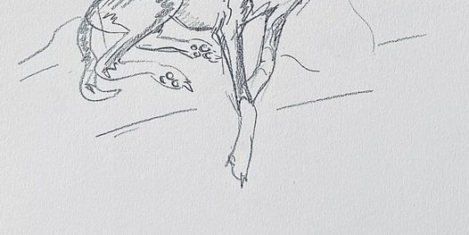
 You probably saw that meme based on an article in the
You probably saw that meme based on an article in the 
 The first Omnirama event on the 23rd of March launched the series exploring different factors challenging the world of work in a time of prevailing uncertainty. Underlying Ominirama’s raison d’etre is that recent events have turned the status quo on its head with some major structural and systemic changes taking place. Nobody seems to have any clear idea of how to deal with this enormous transformation in the ways we work All the playbooks and all the guidance that we have all relied upon for so many years have now gone out the window.
The first Omnirama event on the 23rd of March launched the series exploring different factors challenging the world of work in a time of prevailing uncertainty. Underlying Ominirama’s raison d’etre is that recent events have turned the status quo on its head with some major structural and systemic changes taking place. Nobody seems to have any clear idea of how to deal with this enormous transformation in the ways we work All the playbooks and all the guidance that we have all relied upon for so many years have now gone out the window. 
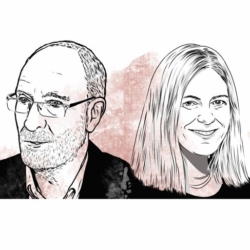









July 14, 2022
There are now fewer taboo workplace subjects, and we should talk about that
by Peter Nagle • Comment, Wellbeing